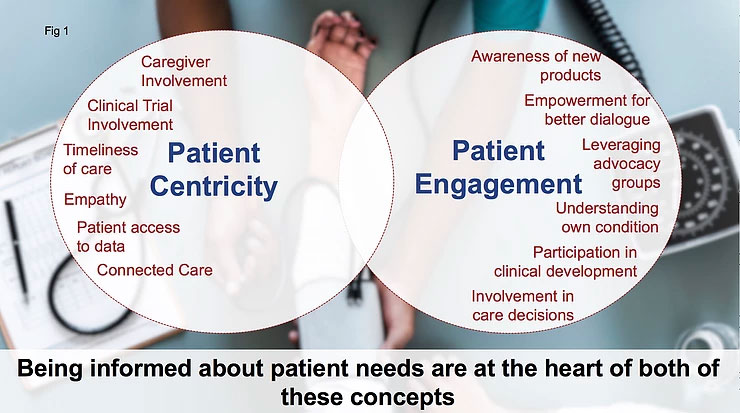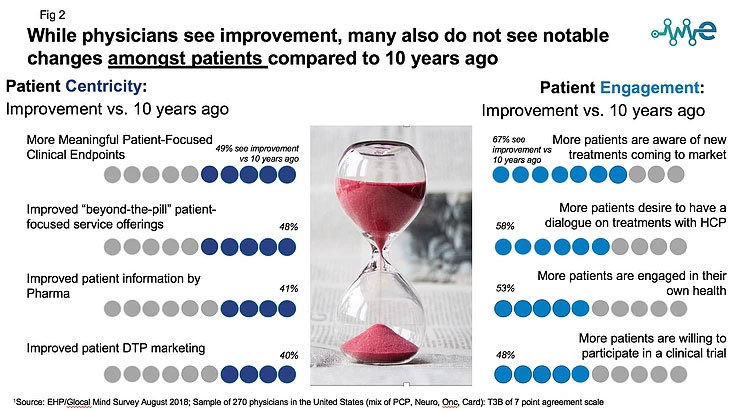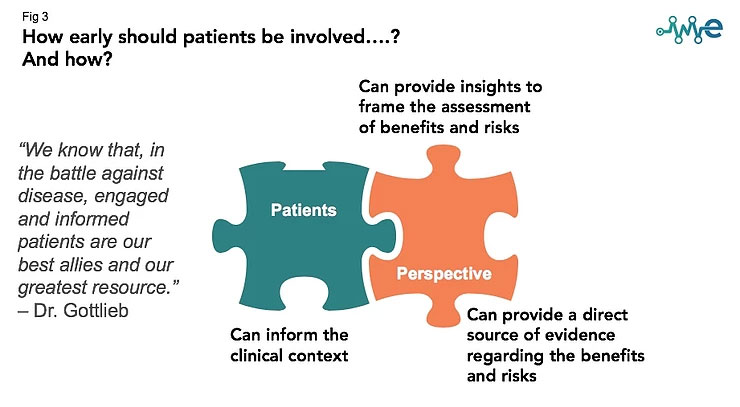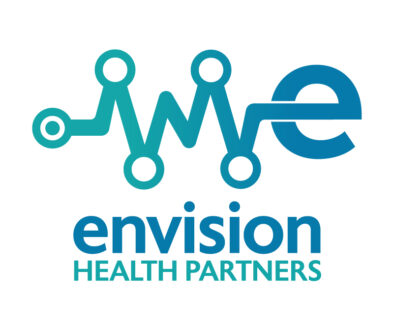Working with Patients – improving patient centricity and patient engagement to drive better outcomes
According to the Robert Wood Johnson Foundation, “patients without the skills to manage their health care incur costs up to 21 percent higher than patients who are highly engaged in their care.”
A 2014 NIH1review of patient involvement in health care decision making suggests that several factors influence patient participation:
- factors associated with health care professionals such as doctor-patient relationship
- recognition of patient’s knowledge
- allocation of sufficient time for participation
- and also factors related to patients such as having knowledge, physical and cognitive ability, and emotional connections, beliefs, values and their experiences in relation to health services
Clearly the ideas of patient centricity (where providers and services are focused around a patients’ values, circumstances and affordability) and patient engagement (the patients’ own response and behavior to treatment recommendations) are very closely linked and must be managed for optimal outcomes.

Industry is making concerted efforts to build patient perspectives into R&D; the FDA is now allowing patient-oriented outcomes to influence regulatory approvals and pharmaceutical companies are ramping up patient education (not just promotion via advertising) to empower a better dialogue between physicians and patients.
So how are we doing?
Envision Health Partners in collaboration with GlocalMind, conducted a survey of physicians (270 primary care, oncologists, cardiologists and neurologists) in the United States, to explore some of these issues. This article explores physician perspectives on whether patients are able to be engaged in their own healthcare and whether the pharmaceutical industry has made meaningful strides in supporting patient care?
Across all specialists we surveyed, we see that only a slim majority of physicians agree that patients are more engaged in their own care today, compared to 10 years ago, but quite large numbers feel there has not been any change over this time. That suggests the jury is still out on this question! This, despite all the “direct to patient” advertisements on TV and in leading publications for at least the past 10 years to educate and promote.

Across all sectors that ultimately serve patients, it literally pays to improve the patients’ experience. According to a Deloitte study, higher patient experience ratings are associated with higher profitability. Hospitals with “excellent” patient ratings see a net margin of 4.7%, on average, compared to just 1.8% for hospitals with “low” ratings.
How can we do better?
Borrowing from other industries, we have definitely moved down the path of “incentivising” good behaviors. For example, some companies offer a discount on health insurance premiums based on adherence to wellness programs. But this has traditionally been with a focus on improving outcomes.
We have to ask ourselves…what have we done to get patients truly engaged in their own care?
It would seem that getting patients’ involved in new product design would be a key element, as evidenced by other industries, that rely on customer input to develop a product or service. We simply cannot afford otherwise. There are too many examples of expensive failures – where products have failed to be adopted as envisioned, by patients.
If a product or service is co-created with customer [patient] input, it seems logical to conclude that it stands a better chance of adoption and patients would perhaps even advocate for better access to such products and services.
Therefore the question is how early in the product lifecycle should they be involved and how – what are the best ways to engage them at various stages of clinical development and commercialization?

Logically, it would seem that involving patients earlier is better, however therapy area nuances impact which stakeholders should get involved early in the development process and where patients can best contribute. It takes vision, leadership, empathy ….and a good understanding of the patient and other stakeholders, to consider various perspectives in early stage planning.
At Envision Health Partners, we are passionate about helping you get insights from the right set of stakeholders, including the patient, to maximize clinical and commercial success. Get in touch to see how we can help.
++++++++++++++++++++++++++++++++++++++++++++++++++++++++++
For a fuller review of the market research survey results, email us.
Authors:
Madhunika Raghavan, Managing Partner, Envision Health Partners and,
Christine LaFiura, Managing Partner, Envision Health Partners
Data Powered By: GLocal Mind’s proprietary panel of healthcare practitioners
 @Envision Health Partners: Headquartered in US, Envision Health Partners is a full service global market research consultancy. Focused on early stage pipelines, Envision Health Partners brings HCP and patient insights to impact clinical trial design and influence market-making strategies. mraghavan@envisionhealthllc.com
@Envision Health Partners: Headquartered in US, Envision Health Partners is a full service global market research consultancy. Focused on early stage pipelines, Envision Health Partners brings HCP and patient insights to impact clinical trial design and influence market-making strategies. mraghavan@envisionhealthllc.com
www.envisionhealthpartnersllc.com

@GLocal Mind: GLocal Mind is a global healthcare data collection company. Leveraging their high-quality physician and allied healthcare professionals panel, and a good understanding of local markets, they work collaboratively to support qualitative and quantitative market research needs. 900,000+ panelists are carefully recruited using double opt-in, permission based techniques thus providing a high quality and diverse global panel that includes physicians across specialties, KOLs, Payers, Nurses, Dentists, Veterinarians, Ophthalmologists, Opticians and Pharmacists. Vrinda.d@glocalmind.com


